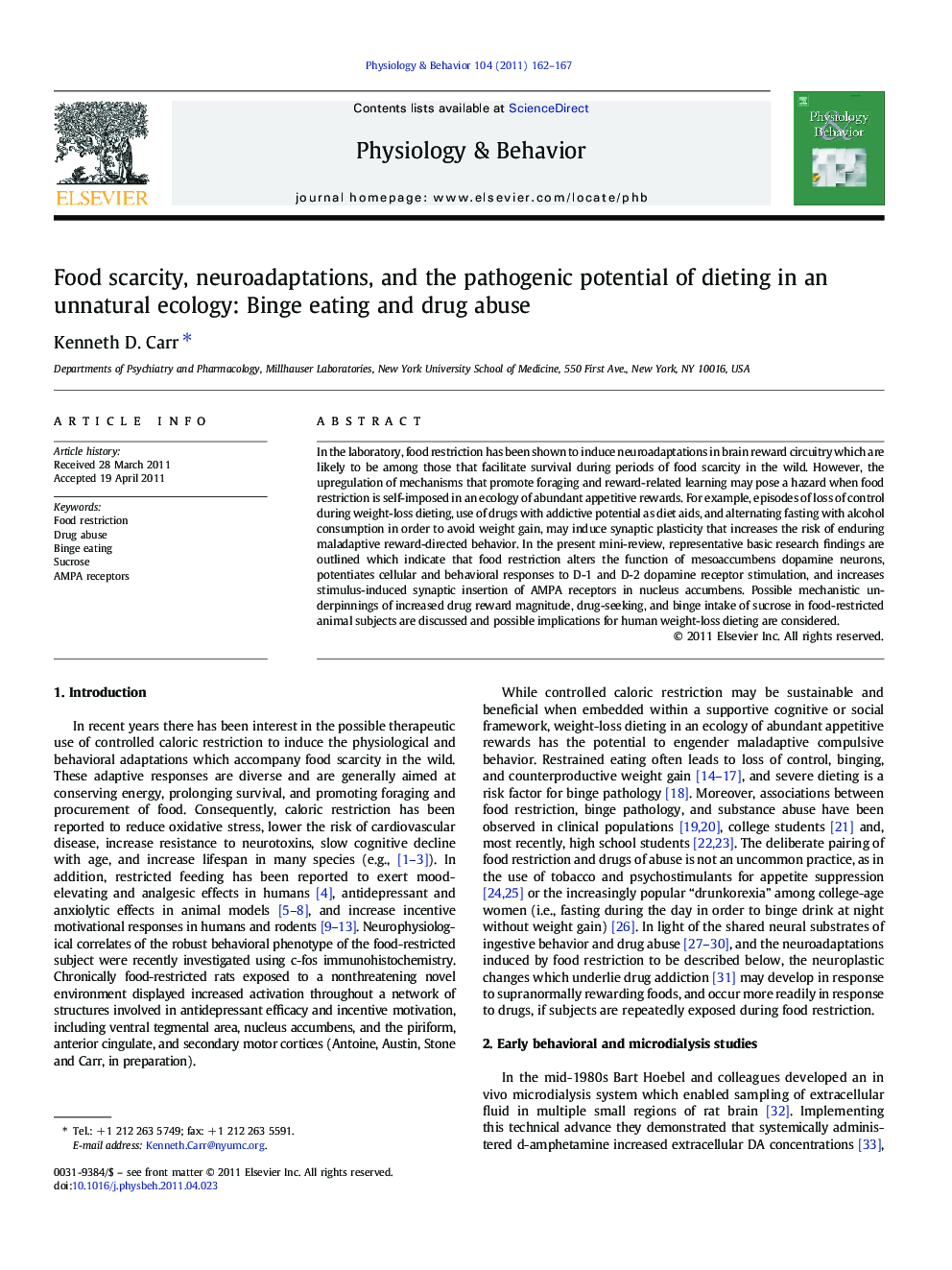| کد مقاله | کد نشریه | سال انتشار | مقاله انگلیسی | نسخه تمام متن |
|---|---|---|---|---|
| 2844594 | 1166351 | 2011 | 6 صفحه PDF | دانلود رایگان |

In the laboratory, food restriction has been shown to induce neuroadaptations in brain reward circuitry which are likely to be among those that facilitate survival during periods of food scarcity in the wild. However, the upregulation of mechanisms that promote foraging and reward-related learning may pose a hazard when food restriction is self-imposed in an ecology of abundant appetitive rewards. For example, episodes of loss of control during weight-loss dieting, use of drugs with addictive potential as diet aids, and alternating fasting with alcohol consumption in order to avoid weight gain, may induce synaptic plasticity that increases the risk of enduring maladaptive reward-directed behavior. In the present mini-review, representative basic research findings are outlined which indicate that food restriction alters the function of mesoaccumbens dopamine neurons, potentiates cellular and behavioral responses to D-1 and D-2 dopamine receptor stimulation, and increases stimulus-induced synaptic insertion of AMPA receptors in nucleus accumbens. Possible mechanistic underpinnings of increased drug reward magnitude, drug-seeking, and binge intake of sucrose in food-restricted animal subjects are discussed and possible implications for human weight-loss dieting are considered.
Research highlights
► Food restriction (FR) increases behavioral responses to D-1 receptor stimulation.
► FR upregulates D-1 receptor signaling and transcription in nucleus accumbens.
► FR increases GluR1 phosphorylation in response to cocaine and sucrose.
► FR increases synaptic insertion of AMPA receptors in response to sucrose.
► FR may increase synaptic plasticity and addiction risk.
Journal: Physiology & Behavior - Volume 104, Issue 1, 25 July 2011, Pages 162–167